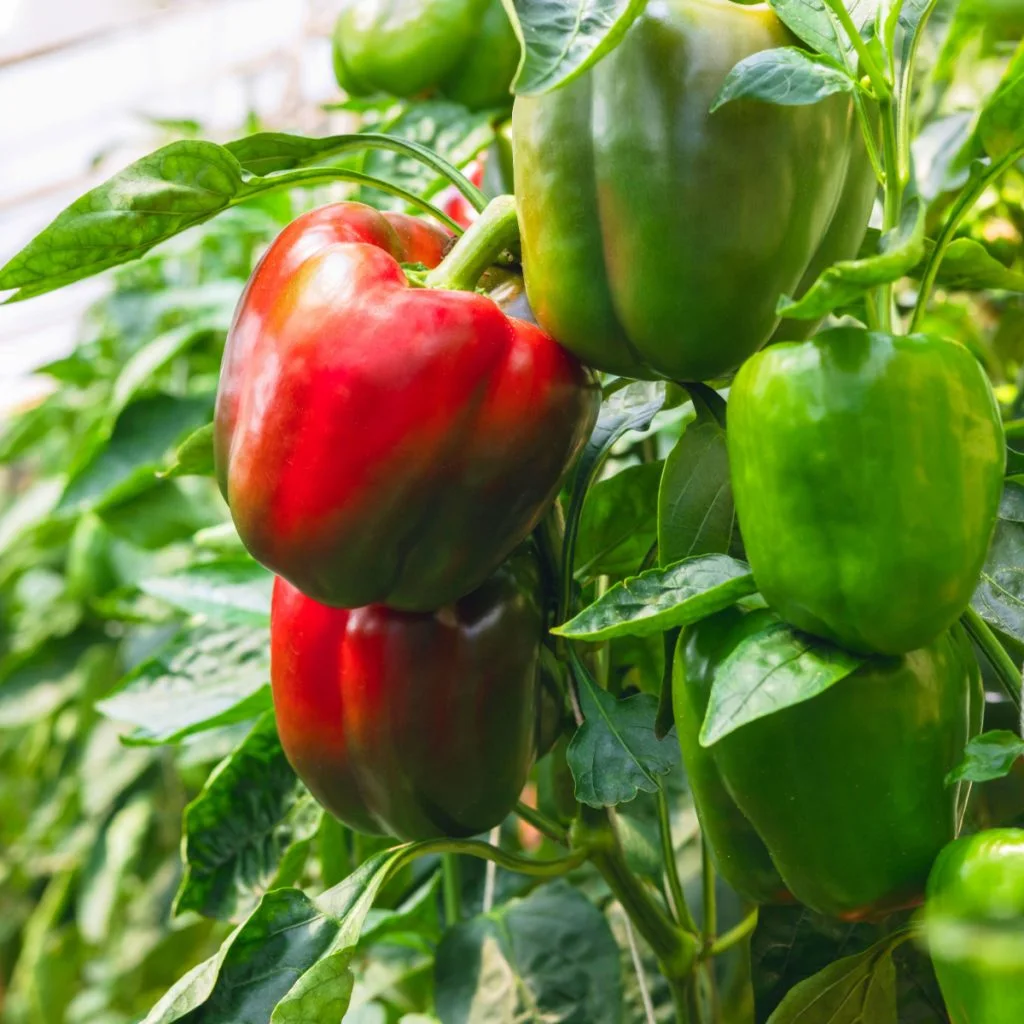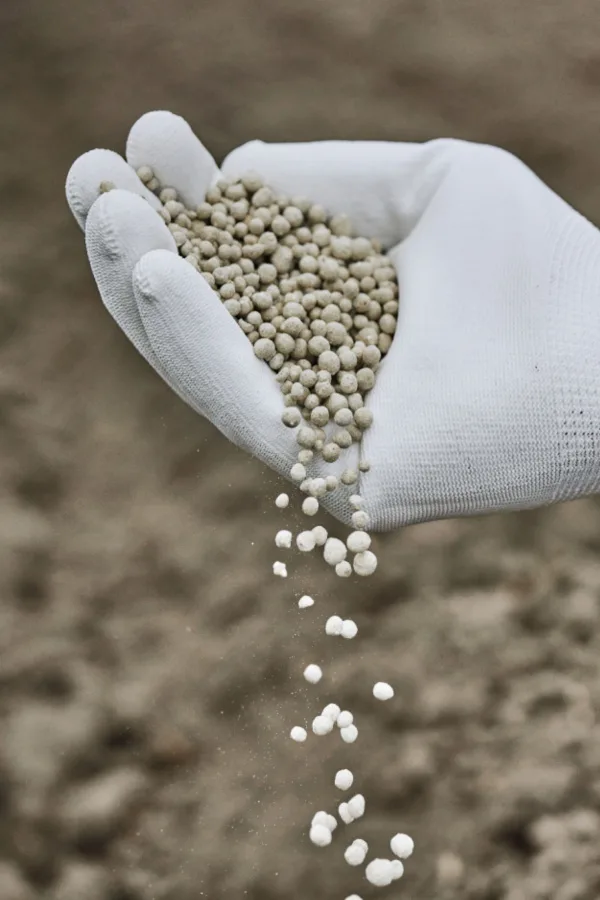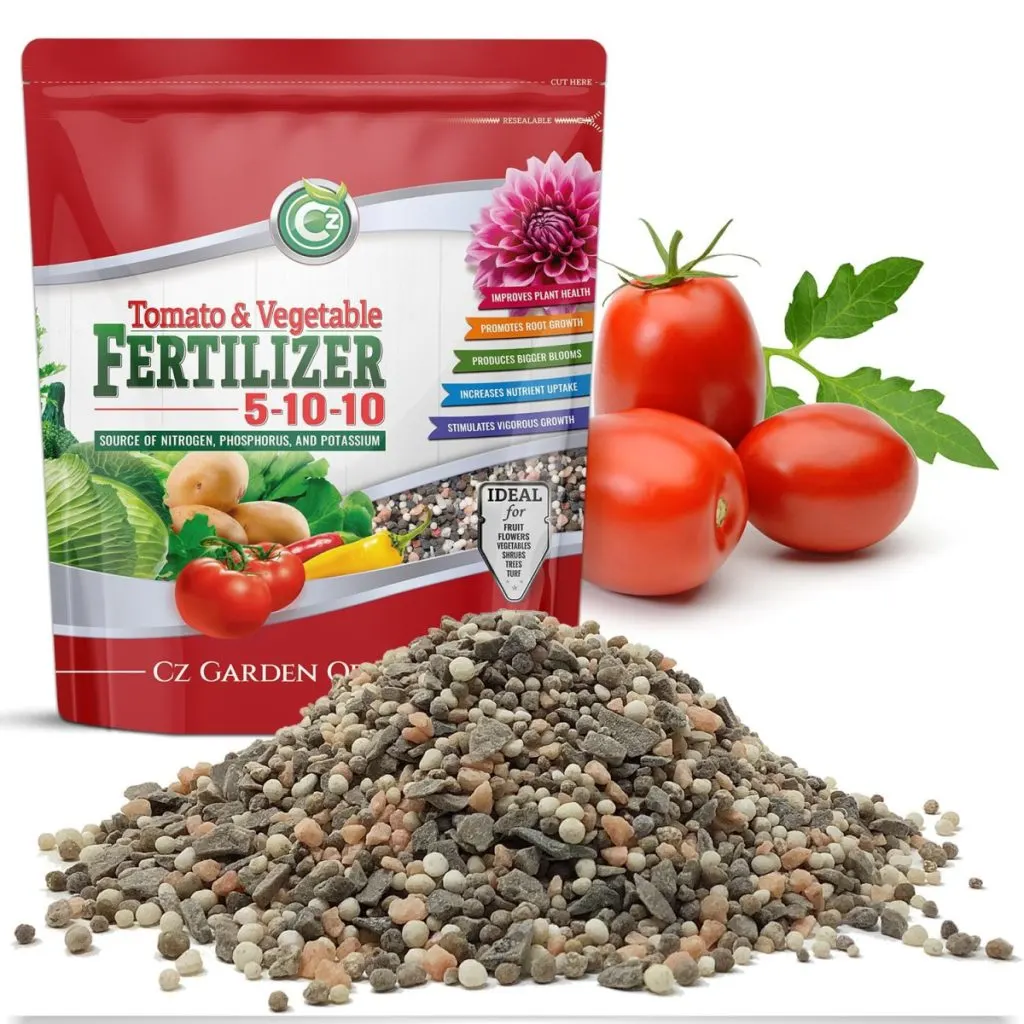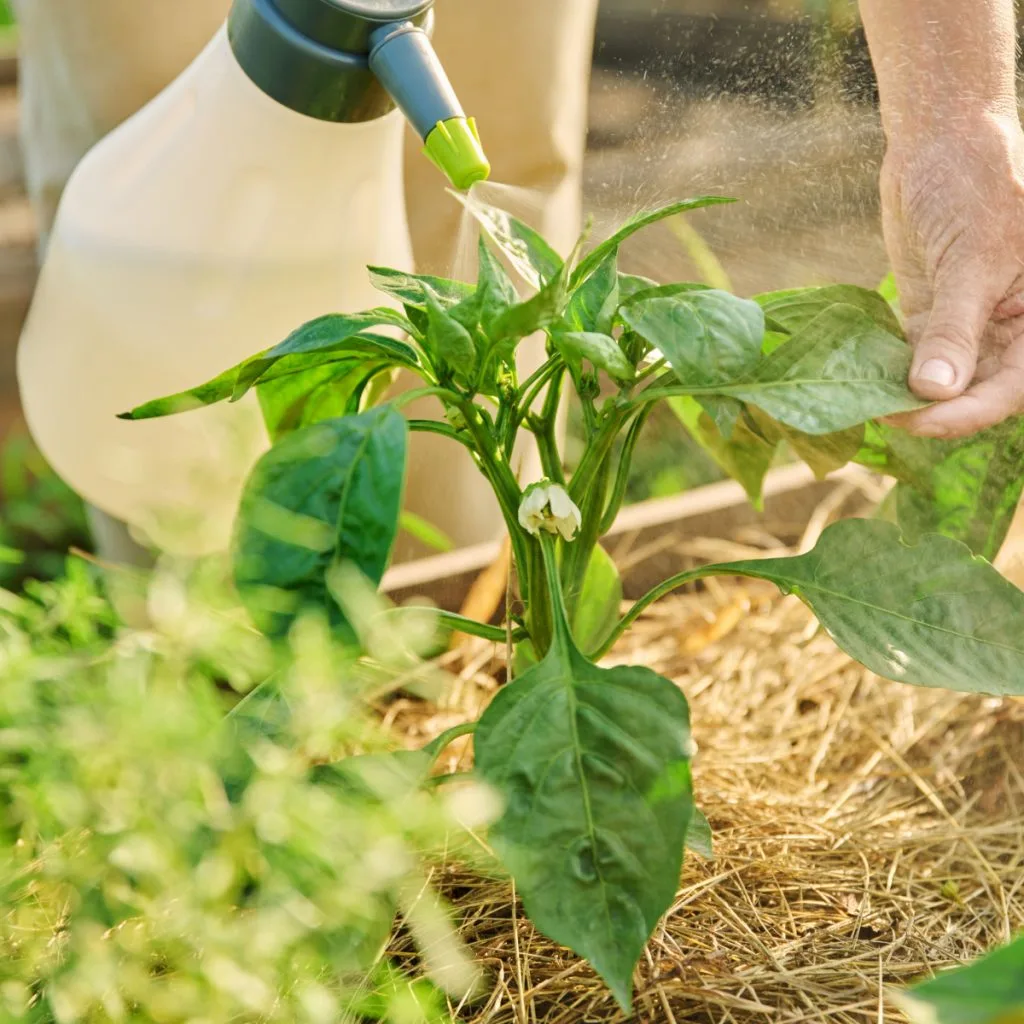When it comes to fertilizing your bell pepper plants, knowing the right way to power your peppers can make all the difference between having plants that are slow to grow and produce – or ones that flower and fruit like never before!
Pepper plants, just like tomatoes, are heavy feeders. They require a tremendous amount of energy from the soil in order to produce healthy foliage, blooms and fruit. And without those nutrients, the plants simply don’t have the energy they need to grow strong roots, stems and foliage.
Although sweet peppers, banana peppers, chili peppers and any variety in between all need a constant source of nutrients – with their overly large size – bell peppers require even more. And that is exactly why fertilizing them on a consistent basis is so important!

The Secret To Fertilizing Bell Pepper Plants
When it comes to bell peppers, not only is it important to use the right type of fertilizer on your plants, but it’s also vital to make sure you are using the right amount at the right time!
Giving your peppers too much fertilizer at one time will cause plants to focus all their energy on becoming bigger. This creates an excess of foliage growth as opposed to bloom and fruit production.
On the flip side, too little resources will leave plants weak – and weak plants don’t have enough energy to put towards creating blooms and fruit either.
The key to success is to fertilize your bell pepper plants consistently, but in smaller doses that won’t overwhelm plants. You can accomplish this with both granular and liquid fertilizers in a one-two punch.
Selecting The Right Fertilizer
Nearly all fertilizers you purchase have a set of three numbers on the package that refer to its N-P-K makeup. The ratio tells you the amount of Nitrogen (N), Phosphorus (P), and Potassium (K) that are within the fertilizer mixture.

These numbers are important because different plants require different specific nutrients in order to either grow or produce their fruit or flowers. When it comes to fertilizing bell pepper plants, each number helps the pepper plant in a unique way.
Nitrogen’s job is to essentially help plants grow and become bigger. While it’s important for pepper plants, a high nitrogen level won’t result in more blooms. In fact, when too much nitrogen is present, it can mean even fewer blooms and fruit.
Phosphorus and potassium, on the other hand, are great for helping plants develop and set blooms. And more blooms equal more peppers to harvest.
That is exactly why when selecting a pepper fertilizer, you need to look for a ratio for that has a lower percentage of nitrogen – and a higher percentage of both phosphorus and potassium.
Check out our latest podcast!

Liquid vs Granular Fertilizers
Liquid fertilizers are considered to be foliar fertilizers. This means that they can not only be applied to the soil but directly onto the plants’ foliage as well. This allows the plants to absorb the nutrients via their roots as well as their leaves and stems.
On the other hand, granular fertilizers are only to be applied to the soil around plants. They take longer to break down and are designed to give plants energy slowly over time. Both are great choices to use separately for fertilizing bell pepper plants. However, when you use them together, that’s when the magic really starts to happen for peppers!
Fertilizing Bell Pepper Plants At The Right Time – With The Right Fertilizer
How much fertilizer you use as well as the frequency you will need to apply will depend on the age and maturity of your bell pepper plants.
When you first transplant your bell pepper plants outside, you want to give them a bit of time to adjust before applying fertilizer. They need time to get used to the new soil they are in as well as being exposed to all of the outdoor elements. See: What To Put In A Pepper Planting Hole – 3 Ingredients That Get Peppers Growing Fast!
It’s best to wait seven to ten days after planting before applying your first dose of fertilizer. This creates less stress for plants while still allowing them enough time to push out new roots.

For that first feeding, a slow feeding granular option is the way to go. This will allow the nutrients to soak down in the soil slowly and build strong roots. For this feeding, a 5-10-10 N-P-K granular option is ideal. Affiliate Link: 5-10-10 Tomato & Vegetable Fertilizer
Follow the directions on the granular fertilizer package since each brand might vary slightly. Most granular fertilizers will have you mix in a specific amount into the soil surrounding your plants. Then, it is always best to water them in well.
Avoid getting the granules on the foliage of the plant and keep them a few inches away from the stem. For the granular feeding, continue to feed your plants once a month for a steady stream of slow and steady nutrients.
Powering Up With Liquid Fertilizer
After three to four weeks, it’s time for fertilizing your bell pepper plants with a more regular dose of instant energy. This will help it to set more blooms and fruit as the season goes on. Liquid fertilizers absorb fast, helping the plant keep production and blooms steady.

For the liquid feeding, select a fertilizer that again has a higher ratio of phosphorus and potassium than nitrogen. For this task, use one that has even a higher of the two versus nitrogen. Affiliate Link: Farmer’s Secret Fruit & Bloom Booster Fertilizer
Apply the liquid fertilizer every two weeks – making sure to be consistent with the feedings. This will keep your pepper plants concentrating on blooms and fruit – and not just growth.
One thing is for certain – the one-two punch of using both liquid and granular fertilizers will have your bell pepper plants growing lush, healthy, and most importantly, producing all summer long! For more tips on a great pepper harvest this year, be sure to check out: How To Prune Young Pepper Plants – Why It’s A Must To Take Off Early Flowers & Fruit!
Simple Garden Life
Follow Our Facebook Page For Even More Great Tips! Simple Garden Life Facebook Page
Simple Garden Life is a website dedicated to keeping gardening fun, simple and enjoyable! We publish two new articles each week along with a new garden podcast episode every two weeks. This article may contain affiliate links.
